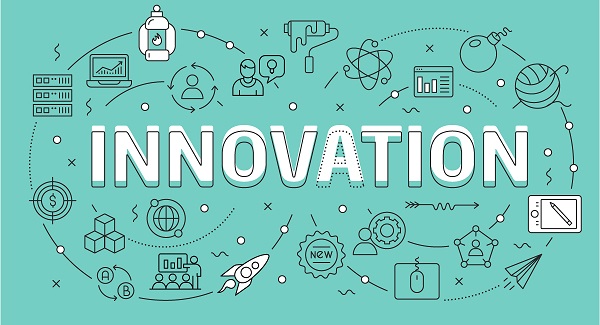The Mirror's Health , Lifestyle and Fashion

Fit for the future?
This week, Parry was earmarked to receive a prize money of £50,000 as an award in the United Kingdom (UK) for Young Innovators Next Steps, and this was after winning a UK-government Young Innovators award, in recognition of his brain injury app that helps the rehabilitation process of individuals with neurological conditions. The app, Neumind, has gone from one user (who is Parry’s twin brother) to more than 450.
Advertisement
Parry’s innovation was borne out of a desire to help his brother live an independent life after suffering a devastating brain injury when he fell from a balcony in 2012. Doctors told Ellis that his brother only had hours to live, but a decade on, he has recovered, working and training to be a Paralympic athlete.
Reading this story touched me in many ways, therefore, I decided to be a bit more provocative this week by submitting a piece that reflects on the impact of innovative and disruptive technology on our future, and why we could be “redundant”, literally, if we do not subject ourselves to continuous professional development. What do l mean by this? Well, in the past week, as always, l had the opportunity to read about how new technologies are transforming some key industries and impacting positively on human lives.

This time round too, I saw the significant strides made in key sectors, driven by technology, like the Parry case discussed above. As l pondered over all these developments, I wondered also, whether all of us can keep up with the pace of technology-driven innovations. My worry lies in inclusive growth, sustainable development, poverty reduction, and the challenges and opportunities that lie ahead. Disruptive innovations have challenged existing paradigms and offered new possibilities that were primarily unimaginable. As Nelson Mandela once said, “It always seems impossible until it is done.”
In fact, I have learnt a lot in the past two years because of the pandemic, and the lessons, I believe, could be the foundation for the next generation of economic transformation. First was how the outbreak of the COVID-19 pandemic laid bare the fact that our future is inextricably linked to creativity and innovation, and how things can change quickly, even if we believe that we have put in place all the right mechanisms in our decision-making process. Can you try a quick recap of how COVID-19 has affected you in the past two years?
For me, the emotional, physical and psychological trauma associated with the pandemic call for some deep reflection on life in general, and personal plans for the future. This was- and continues to be- an experience of a lifetime.
And this draws in the importance of creativity and innovation. In the heat of the pandemic, I was in awe to witness how organisations that had fully embraced technology were able to seamlessly continue to operate even during the peak period of the pandemic.
Creativity and innovation is what is going to underpin the next generation of economic activity. We already have Artificial Intelligence and Machine Learning helping to decipher and break down complex processes for industry. Yes, it may not be all about robotics and complex algorithms with technology but the big picture is that technological innovation is affecting every industry in different ways. This technological sea change is transforming the financial sector and the wider economy, affecting all aspects of our work – and the nature of money in a digital world.
Talking about robots, today, robots are deployed to perform some of the tasks that humans used to do. In Amazon warehouses, for example, robots sort goods, and also play significant roles in the car manufacturing industry. In fact, a recent story I read about robotics researcher, Joe Davidson, got me thinking. In this report, Davidson and his colleagues, it was claimed, had turned to the human hand for inspiration, by observing professional fruit pickers, and now working to replicate their skilled movements with robotic fingers. In effect, the robots will be picking apples for you! And, according to reports, their work could help to transform agriculture, especially improving the work of farm workers.
Joseph Schumpeter (1883-1950), the Austrian-American Economist and Social Theorist, famed for his work on entrepreneurship, offered another dimension to how and why sometimes old situations fade away in seemingly destructive way when confronted with better and superior tools and models. According to Schumpeter, “stimulating investment and innovation” would cause “creative destruction” because there would be the need for old ideas and obsolete technologies to be discarded, and new ideas that are relevant to the needs of the time adopted.
Indeed, today’s era of disruptive innovations mimics the ideas that Schumpeter shared on entrepreneurship— creative destruction— in his era, which simply suggests that the innovator or entrepreneur must be ready to discard old habits and ideas so as to be able to effectively influence others in a creative way, through the products and services offered to address a need. That also applies to individuals if they are to stay relevant at all times.
The pandemic has changed- and will continue to change- situations and processes for a long time to come. Some of these changes will be for good. Therefore, if you fail to commit yourself to continuous training and strong efforts aimed at improving yourself at all times, you will run into challenges in the future. Consider this question: How far do you think your degree will go? Well, your degree does have a shelf life so be ready and prepared to learn new things or keep abreast of the changing times.
If you are an accountant, as an example, there are always several issues within the profession that attract expert review and engagement that you need to know. Reporting standards are frequently reviewed in accounting to make them abreast of the changing business landscape, and several possible policies and guidelines are issued in the form of Exposure Drafts for further consultations. If you don’t read and keep up with new knowledge, you will lose some “knowledge” and soon find yourself in a weak position as far as the employment market is concerned.
Do not be caught in a time warp. Pause, reflect and change direction- reengineering to ensure that what is not working is not allowed to affect your positive progress in life. That way, you will be fit for the future!
Writer’s E-mail: [email protected]




